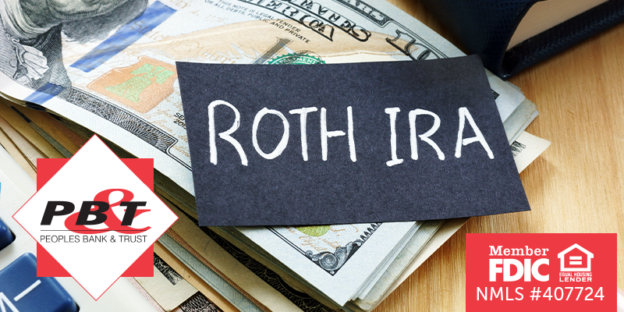If you’re looking to supplement your 401k offered by your employer or you currently do not have an option for a retirement savings account, a Roth IRA could be the savings option for you. Keep reading to learn the ins and outs of a Roth IRAs so you can decide if Roth IRA is the right option for you!
What is a Roth IRA?
Planning for retirement is super important. Whether you’re looking to get started or wanting to incorporate another savings option, a Roth IRA can be a fantastic option for retirement savings. What is a Roth IRA? It is important to understand when it comes to IRA accounts your options are Traditional or Roth. A Roth IRA is an individual retirement account where your money invested has already been taxed. A Traditional or Roth IRA are accounts you open on your own and are not affiliated with an employer.
The most unique feature of a Roth IRA is how the government taxes it. Unlike a traditional 401(k) or a Traditional IRA, your contributions going in is taxed at that time rather than your earnings when you choose to withdraw them.
Top Benefits of a Roth IRA
- Tax-Free Income When You Retire
As we have mentioned, you are paying taxes upfront with a Roth IRA. There could be a chance you are taxed at a lower tax bracket during that time so when you are a retiree you will essentially be avoiding taxes as you take out those funds.
- Great Option If You Don’t Have a 401(k)
If you don’t have a 401(k) through your employer, as long as you have earned income, you can contribute to a Roth IRA as your saving plan for retirement.
- You Do Not Have to Take Money Out of a Roth IRA
With a 401(k) or a Traditional IRA, you are required to take out a certain amount once you reach age 72 – this is known as a required minimum distribution (RMD). With a Roth IRA you will not run into this as it has not RMDs, though when you die your account beneficiary may have to take them.
- Roth IRA Contributions Can Be Withdrawn at Any Time
Since you’ve already paid taxes on your Roth IRA you can withdraw the funds you contributed at any time tax-free as long as you have had a Roth IRA for 5 years. Keep in mind if you withdraw earnings before age 59 ½, you may be penalized by the IRS.
- You May Use a Roth IRA for Certain Life Expenses
With a Roth IRA you are able to use your contributions for a first-time home purchase. You can withdraw up to $10,000 ($20,000 for married couples) from your Roth IRA penalty free to pay for your first-home purchase. Another life expense you can use your Roth IRA contributions on is to pay for college or higher education for yourself, a child, or even a spouse. You will be able to withdraw penalty free though you will still owe income taxes if earnings are included.
- There Are No Age Limits to a Roth IRA
With a Traditional IRA you can’t make contributions until age 72, with a Roth IRA there is no age limit for contributing. In 2023, with a Roth IRA you can only contribute $6,500 under the age of 50. The limit goes up to $7,500 once you are 50 or older.
If you’ve decided a Roth IRA is the option for you or have further questions, we would be happy to help! Contact us today to learn more about our retirement savings options to get you started!
Peoples Bank & Trust Co.
Member FDIC
Equal Housing Lender











